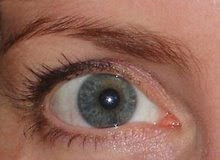"In Plato's Phaedo, Socrates said, True philosophers make death and dying their profession. I think our Greek meant that we should practice dying with every breath, and study dying in our every moment. I also think that the terrible squeezing of the heart we feel when first facing the unknown is the moment when our horizon begins to expand past the bounds of suffering."
--Joan Halifax & Ira Byock, from Being With Dying: Cultivating Compassion and Fearlessness in the Presence of Death
Sometimes I think about death. Sometimes I think about it in ways in which I cannot understand my own thoughts: I will die. When I think this I am not frightened because it seems impossible, which is impossible. People die every day on the highway I take to work, but it is very easy to pretend they don't. Sometimes I think about death in a way that makes it completely tangible: My sister died. When I think this I am no longer struggling to believe it. I still see the box that contained her ashes rather than the ashes themselves. I never looked. And sometimes I think about death in ways that terrify me until I feel ill: and I cannot even write these ways. And sometimes I think about about death not much at all. But why, why should we practice dying with every breath? This I am having trouble understanding.
*
Subscribe to:
Post Comments (Atom)

9 comments:
When I read that, I thought about dying in a metaphoric sense. Like letting go of what just happened so we can welcome the new. I think about dying too for the same type of reasons. I don't know what I believe about the after life. I always thought I believed in heaven until Matthew died. His passing made me question it. I feel like I have to be authentic even if it's just with myself. For some reason, this has meant that I can't really fully believe that there is a heaven...not in the sense that Christian society would have us believe.
Hi Kim, I struggle with this too. I was not raised to believe much of anything and sometimes that feels like an empty space inside that needs something to fill it. But I do not know what, I only seem to know what not.
I believe I'd rather practice living with every breath. Death doesn't frighten me, but hurting as I die does.
I don't know about "practice dying with every breath."
I do know that I think a lot about death in a round about way--not my own death per se--that simply doesn't interest me. I find myself wanting to write about death--about losing someone. It often slips its way into a story, when I didn't know that's where I was going with it.
secret agent: Practice living is seems much more uplifting, doesn't it? Still, I wish I understood what this author meant.
jb: Writing about it is therapeutic, I think, and weaves itself into everything when it needs to come out. Write it, write it, write it! (and let me read it)
I don't want to live every moment thinking about my death either. It seems to be in my mind a lot lately, and while I know intellectually that it is inevitable, I am in at least partial denial. I am more worried about the manner in which I will die than about death itself -- I am scared of a violent end, and even more scared of not living the kind of life that makes the world better, at least for my loved ones.
At my age the subject of death becomes a bit more tangible. I know it is going to happen and a lot sooner than I might want to acknowledge. It is no longer something-not-to-think-about in the improbable future. But at the same time I find myself more comfortable with the notion than I would have believed possible. I don't think about death so much, and I certainly don't worry about it.
But I know that everyone dies alone -- and took me a little while to acknowledge that that is a good thing.
I don't think the intention was for people to think about death in the conventional sense, but to consider the freedom one obtains from surrendering. When one dies, one presumably becomes free. Free of worry, free of pain, stress, inhibitions, suffering, and most of all, fear.
To practice dying with every breath is, essentially to live life to the fullest. To live life with the inherent knowledge that we all will die, but instead of being limited and fettered by this concept, to be liberated, to live in constant awe, with insatiable appetites, and unequivocally free....
Susan, I know you have already accomplished your goal of making the world a better place for others.
Jerry, I think it's progress to move from acceptance of the idea to being able to not worry about it anymore. I want to feel that way.
Brown, thank you for your interpretation of the passage I quoted. I think you probably understood it just exactly in the way it was intended, and put like that I can understand it - and embrace it - too.
Post a Comment